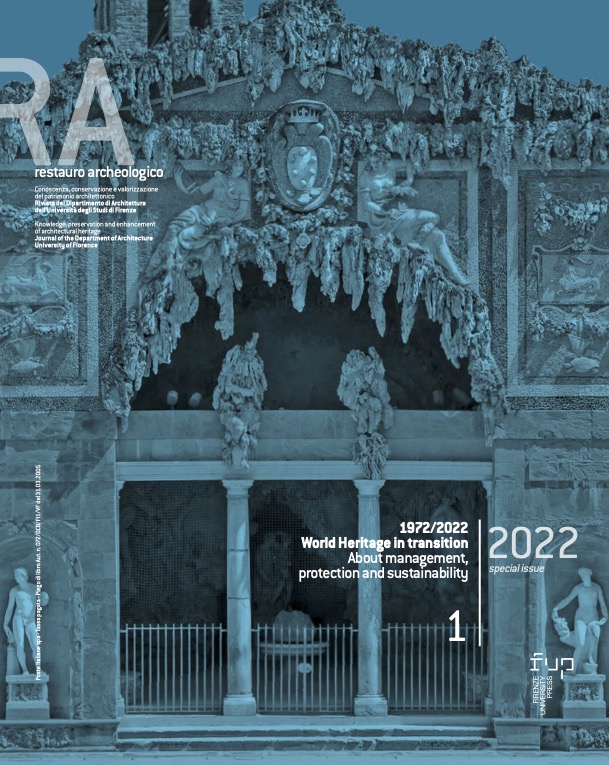Published 2023-02-03
Keywords
- Rural heritage,
- Cultural landscape,
- Architecture,
- Culture,
- Identity
How to Cite
Abstract
Rural contexts have received legal and cultural attention since the late twentieth century, as a result of their social, political and economic development and in parallel with the evolution of the concept of heritage in the Charters and Conventions. In particular, for rural heritage, the time lag between the World Heritage Convention (1992) and the Icomos-Ifla Principles on Rural Landscapes as Heritage (2017) is significant. In relation to this issue, the contribution intends to retrace this evolution, carrying out reflections on some topics, such as: the inclusion of rural heritages in world and national lists (WHL, Italian Register of Historic Rural Landscapes); the different consideration given over time to architecture with respect to rural landscapes; the implications between rural heritage and the most recent environmental initiatives (Agenda 2030). With reference to the most recent Charters and documents on rural heritage and the current orientations to be traced back to the paradigms of the ecological transition - as well as through some examples, such as the Historic Rural Land- scape of the Land Reclamation in Valdichiana – it’s important to reflect about the possibility that these cultural tools can guide practices on rural landscape and restoration interventions on architecture, in order to protect them.


